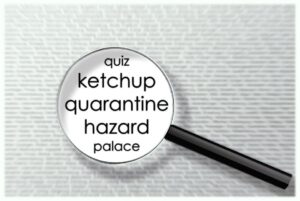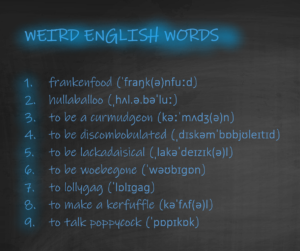Blog

Research can be fascinating
Do you ever wonder about the origin of words? Some words have amazing stories or legends surrounding their origin. For example, most learners of English, sooner or later, come across the famous story behind the word ”sandwich”. (Should you not know that, click on the link below.)

Harness your curiosity
In other words: If you are interested in something and want to find out about it in articles, books, videos, podcasts: look for them in the language that you are learning.

Test your English, just for fun
We have 9 super-weird but existing English words for you. The question is:

The secrets of learning a new language
Do you know who polyglots are? Lydia Machova’s TED talk about the secrets of learning a new language has close to 8.5 million views…

Summer, music, English
Have you tried learning English with music yet? This is the perfect way to have fun while you improve your English skills.

A céges nyelvtanfolyamok elveszett tábora
Az elmúlt hetekben arról beszéltünk, hogyan lehet hatékony a cégeknél történő, kihelyezett nyelvtanfolyam. Megnéztünk különböző szcenáriókat. Ma a céges nyelvtanfolyamban résztvevő legnépesebb táborral foglalkozunk: ők az irodai környezetben dolgozó munkatársak, a pénzügyesek, a beszerzők, a HR-esek.